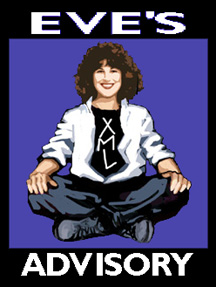In making the case for the Universial Business Language (UBL) over the last few years, Jon Bosak has often talked about the potential of modern B2B technologies to empower small businesses — as in really small, like a mom-and-pop shop in a developing country making fabrics that could be used in automobile manufacture. If the biggest technical barriers to entry are removed and the power of simple, universal, powerful technologies such as XML (with vocabularies that have legally rigorous semantics), HTTP/SMTP, and so on can be harnessed, even the smaller and less influential suppliers can play. And that can make their lives dramatically better.
We’re not all the way there yet, but barriers continue to fall. Last year I came across a cool website called Worldstock.com, an offshoot of Overstock.com. Worldstock specializes in “handcrafted goods from around the world”; to quote from their self-description:
Around the world there are artisans who know how to make exquisite centerpiece items. Yet they have trouble accessing the US market because they are small-lot producers in an age of mass distribution. Often there is no way to get goods from their remote villages to here, and when there is, too many layers of mark-up make them unaffordable. The tragedy is that if we bought their goods, the artisans could prosper without abandoning their native crafts and culture, and without depending on charity.
Overstock’s main business is bringing small lots to consumers at affordable prices. Three years ago we realized that that this capacity is exactly what artisans need. Thus was born Worldstock.
(I don’t know whether XML is involved in making this site a success, or whether individual artisans are using web forms that submit UBL-like purchase order responses to the Worldstock servers! But it’s neat to imagine. And use of such technologies could increase the opportunities for more small businesses — and more retailers. On the other hand, before the full flowering of the Bosak B2B vision, small-lot producers would probably have to increase the consistency of their output quite a bit, such that goods from multiple sources all conformed with tiny tolerances to really detailed specs. And there would probably still be a need for jobbers, which perhaps Worldstock-like companies could fill.)
As one example of what Worldstock has accomplished, it’s helping many hundreds of women in Afghanistan to make a living and feed themselves and their families. Their goods can be browsed by country of origin; in addition to Afghanistan, they offer items from Bali, Brazil, China, Egypt, India, Indonesia, Ghana, Iran, Israel, Lebanon, Mexico, Morocco, Nepal, Pakistan, Paraguay, Peru, Thailand, and Tibet.
Watching the tragic tsunami news from southeast Asia, I was put in mind of Worldstock. In addition to donating money and other resources to help the survivors, consider supporting businesspeople in the affected countries. Economic growth fueled by such purchases could, indeed, help prepare them for future catastrophic events by making them more resilient.


